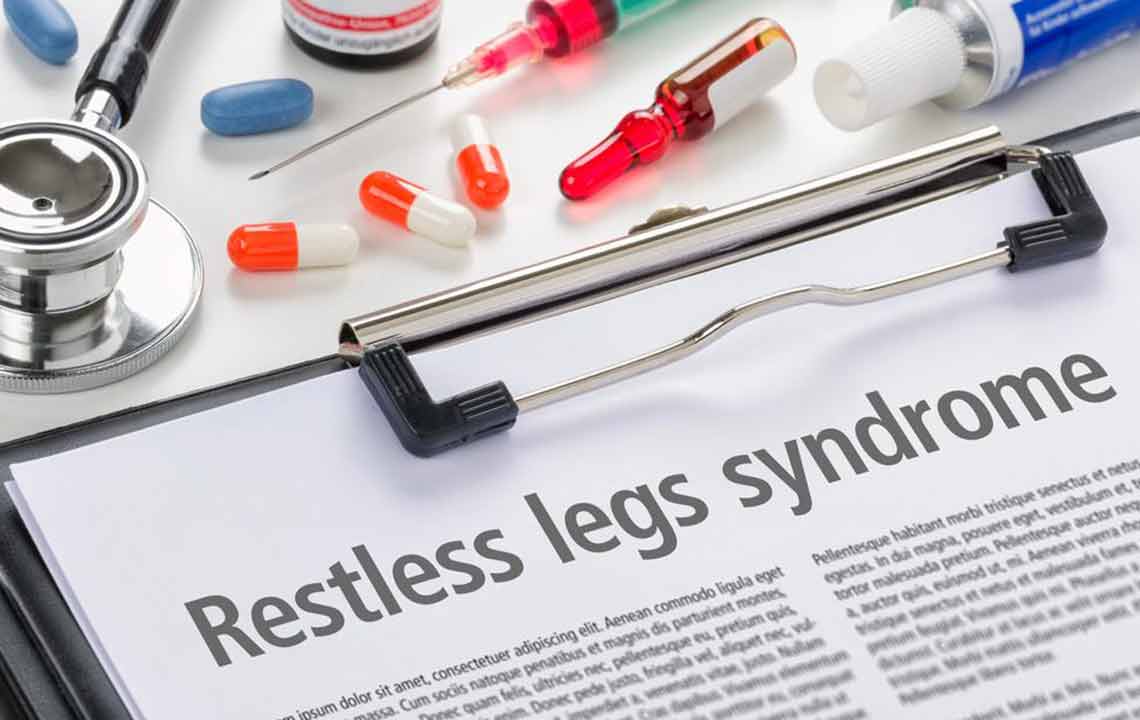Comprehensive Strategies for Managing Restless Leg Syndrome Effectively
This comprehensive guide explores effective strategies for managing Restless Leg Syndrome (RLS) through lifestyle changes, home remedies, nutritional support, and medical treatments. Learn how heat and cold therapy, exercise, sleep hygiene, and identifying triggers can significantly alleviate symptoms. Consult healthcare providers for personalized care to drastically improve sleep quality and overall quality of life. Suitable for sufferers and caregivers alike, this detailed article offers practical advice for effectively controlling RLS symptoms and enhancing daily comfort.

Effective Methods to Relieve Restless Leg Syndrome Symptoms
Restless Leg Syndrome (RLS), also known as Willis-Ekbom disease, is a neurological disorder characterized by an overwhelming urge to move the legs, often accompanied by uncomfortable sensations. This condition can significantly impair sleep quality, leading to fatigue and decreased overall well-being. While RLS lacks a definitive test for diagnosis, a combination of lifestyle adjustments, home remedies, and medical treatments can help manage its symptoms effectively. Understanding these strategies is essential for those affected, as well as for caregivers seeking to improve quality of life for sufferers.
Therapeutic Use of Heat and Cold Therapy
One of the simplest yet effective techniques for alleviating RLS symptoms involves applying heat or cold to the affected legs. Warm packs, heating pads, or hot baths can relax tense muscles, enhancing blood flow and reducing sensations of discomfort. Conversely, cold packs or ice wrapped in a cloth can numb nerve endings and decrease inflammation. Alternating between warmth and cold therapy may produce the best results. For many, taking a warm shower or bath before bedtime, coupled with gentle leg massages, can promote relaxation. Regularly incorporating these practices into your bedtime routine can help mitigate nightly symptoms, allowing for more restful sleep.
Importance of Regular Exercise and Stress Management
Engaging in moderate, consistent physical activity is pivotal in controlling RLS symptoms. Activities like walking, swimming, or gentle stretching not only improve circulation but also help release endorphins, which can diminish discomfort. It is advisable to avoid vigorous workouts late in the day, as intense exercise might exacerbate symptoms or interfere with sleep. Incorporating relaxation techniques such as yoga, meditation, deep breathing exercises, or tai chi helps lower stress levels, which are often a trigger for RLS episodes. Managing stress effectively can significantly reduce symptom frequency and severity, contributing to a healthier, more balanced lifestyle.
Establishing a Consistent Sleep Hygiene Routine
Sleep disturbances are common among RLS sufferers. Developing a regular sleep schedule by going to bed and waking up at the same time every day is fundamental. Creating a calming pre-sleep environment — such as reading, listening to soothing music, or taking a warm bath — signals your body that it is time to relax. Removing electronic devices, bright lights, and screens from the bedroom minimizes distractions and melatonin disruption, aiding in better sleep quality. Consistent sleep habits can diminish fatigue during the day and decrease the intensity of RLS symptoms at night, fostering overall health and well-being.
Nutritional Considerations and Diet
Diet plays a crucial role in managing RLS. Deficiencies in essential nutrients like magnesium, folic acid, and vitamin B complex have been linked to increased symptoms. Ensuring a balanced diet rich in these nutrients can help alleviate discomfort. Incorporating foods such as leafy greens, nuts, seeds, beans, and fortified cereals can boost nutritional intake. Blood tests can identify specific deficiencies, enabling healthcare providers to recommend supplements or dietary adjustments. Maintaining optimal nutritional levels supports nerve health and muscle function, which are critical in controlling RLS symptoms.
Utilization of Over-the-Counter and Prescription Medications
For mild to moderate symptoms, over-the-counter pain relievers like acetaminophen or NSAIDs such as ibuprofen, naproxen, and ketoprofen may provide temporary relief. However, prolonged use of non-steroidal anti-inflammatory drugs (NSAIDs) can lead to gastrointestinal issues and elevate cardiovascular risks. Consulting a healthcare professional before use is essential. In cases of severe RLS, physicians may prescribe medications specifically aimed at reducing symptoms. Drugs like gabapentin, originally developed for epilepsy, are often effective in controlling nerve-related discomfort. Dopamine agonists such as pramipexole (Mirapex), ropinirole (Requip), and rotigotine (Neupro) are common choices, although they may cause side effects like nausea, dizziness, or compulsive behaviors. In some scenarios, benzodiazepines, anticonvulsants, or opioids might be prescribed, always under strict medical supervision to minimize risks. Tailoring medication regimes requires close coordination with healthcare providers to balance efficacy and safety.
Avoiding Known Triggers to Minimize Symptoms
Identifying and avoiding factors that worsen RLS symptoms is vital. Prolonged periods of inactivity, such as sitting for extended hours during travel or work, can trigger or intensify sensations. Avoiding caffeine-laden foods and drinks — including coffee, black and green teas, chocolate, sodas, and certain energy drinks — is highly recommended, especially in the hours leading up to bedtime. Smoking tobacco should also be reduced or eliminated, as nicotine acts as a stimulant and can interfere with sleep. Some individuals find it helpful to keep a symptom diary to track potential triggers and observe patterns over time. By making these lifestyle modifications, many can experience a notable reduction in frequency and severity of RLS episodes, substantially improving daily comfort and sleep quality.
In conclusion, managing Restless Leg Syndrome requires a comprehensive approach that includes lifestyle adjustments, nutritional support, stress management, and medical intervention when necessary. While RLS can be challenging, adopting personalized treatment strategies in consultation with healthcare professionals can help reduce symptoms, improve sleep quality, and restore overall well-being. Staying informed and proactive is key to living well with this condition, allowing individuals to regain control over their daily lives and sleep health.





